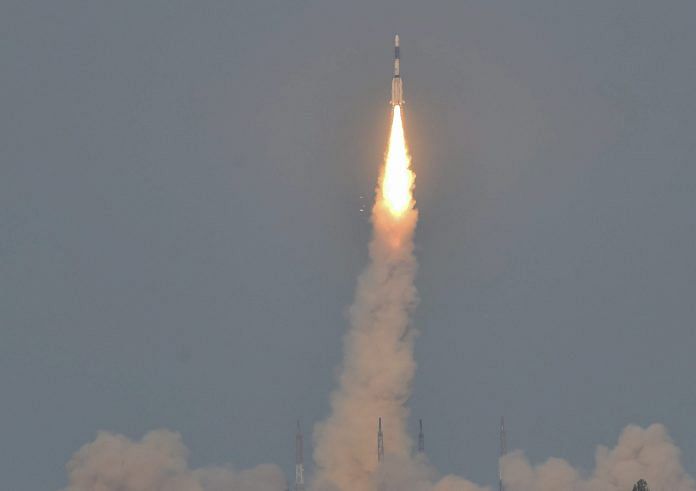ISRO chairman says efforts are underway to establish contact with the communication satellite which lost link during the third phase of putting it into orbit.
Bengaluru: ISRO said Monday that contact with the GSAT-6A satellite may be possible following examination of preliminary data. The military-grade communications satellite, which was launched last week from Sriharikota in Andhra Pradesh, has stopped responding despite several attempts to re-establish a link with it.
A satellite is put into orbit in three phases. It was in the third phase that the communication with the GSAT-6A was lost. Loss of contact is normal during spaceflights as there are unpredictable disruptions, but the duration of such black-outs remain within permissible time limits. GSAT-6A’s has exceeded over 24 hours, officially.
“Efforts are underway to establish link with the satellite,” the Bengaluru-headquartered space agency said on its website.
ISRO Chairman K. Sivan told PTI preliminary data showed that there are chances of recovery, but establishing the link with the satellite was the key to it.
“We are trying to establish the link. Mission Control is on the job continuously,” he said.
Usually, the satellite goes into a ‘safe mode’ in cases of disturbances and reconnects after. Although this has not happened this time, there are still chances of recovering the satellite.
“Right now the preliminary data shows we have a chance, we keep trying. First, we have to get the link, that is the most important, once it is there, we will be able to do the job,” Sivan said.
The suspected culprit is a failure in the power system that cut off telemetry. The chairman of ISRO added that even if the satellite has lost power, backup power could be used to re-establish contact.
The GSAT-6A, which has a mission life of 10 years would provide better mobile telephone coverage, even in remote areas.
Although the satellite is technically not “lost” as it can be tracked through other systems, it will end up simply as a revolving piece of space debris from an unsuccessful dead mission unless it can be controlled and moved to function in its orbit.
Irrespective of the outcome, ISRO will now have to perform more stringent quality checks and implement tougher measures on its missions. They will also attempt to arrive at the root cause of the problem.
ISRO is slated to launch many other satellites this year including Oceansat-3, Cartosat-3, and the orbiter-lander-rover package of Chandrayaan-2. Launch dates for all these missions are yet to be announced. – with inputs from PTI



